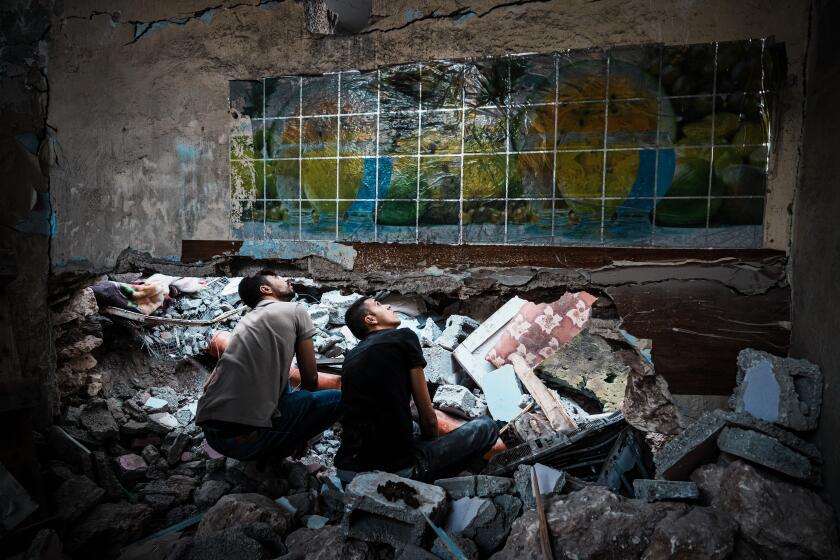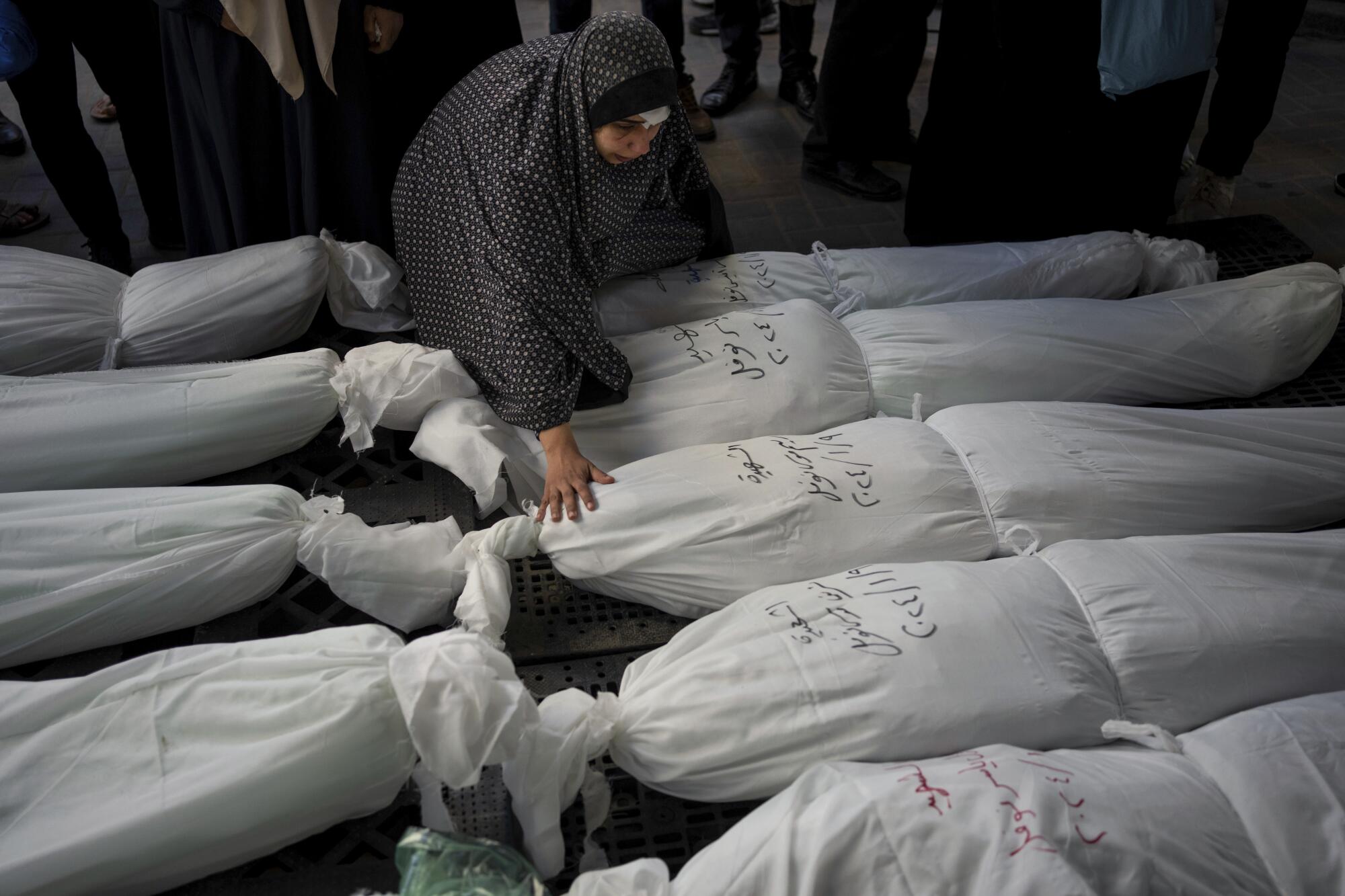
- Share via
TEL AVIV — Secretary of State Antony J. Blinken spoke to Palestinian Authority President Mahmoud Abbas on Wednesday about reforming the limited self-rule government, as part of U.S. efforts to rally the region behind postwar plans for Gaza that also include concrete steps toward a Palestinian state.
The U.S. is pushing for a reformed Palestinian Authority to govern Gaza once the war is over. Blinken says that multiple countries in the region have agreed to help rebuild the territory and that wider Israeli-Arab normalization is still possible, but only if there is “a pathway to a Palestinian state.”
In their meeting Wednesday in the West Bank city of Ramallah, Blinken told Abbas that the U.S. supports “tangible steps towards the creation of a Palestinian state,” according to State Department spokesman Matthew Miller. He said the two discussed administrative reform.
The vision outlined by Blinken faces serious obstacles. Israeli Prime Minister Benjamin Netanyahu’s government is adamantly opposed to the creation of a Palestinian state alongside Israel, and the autocratic, Western-backed Palestinian Authority leadership, whose forces were driven from Gaza when Hamas took over in 2007, lacks legitimacy in the view of many Palestinians.
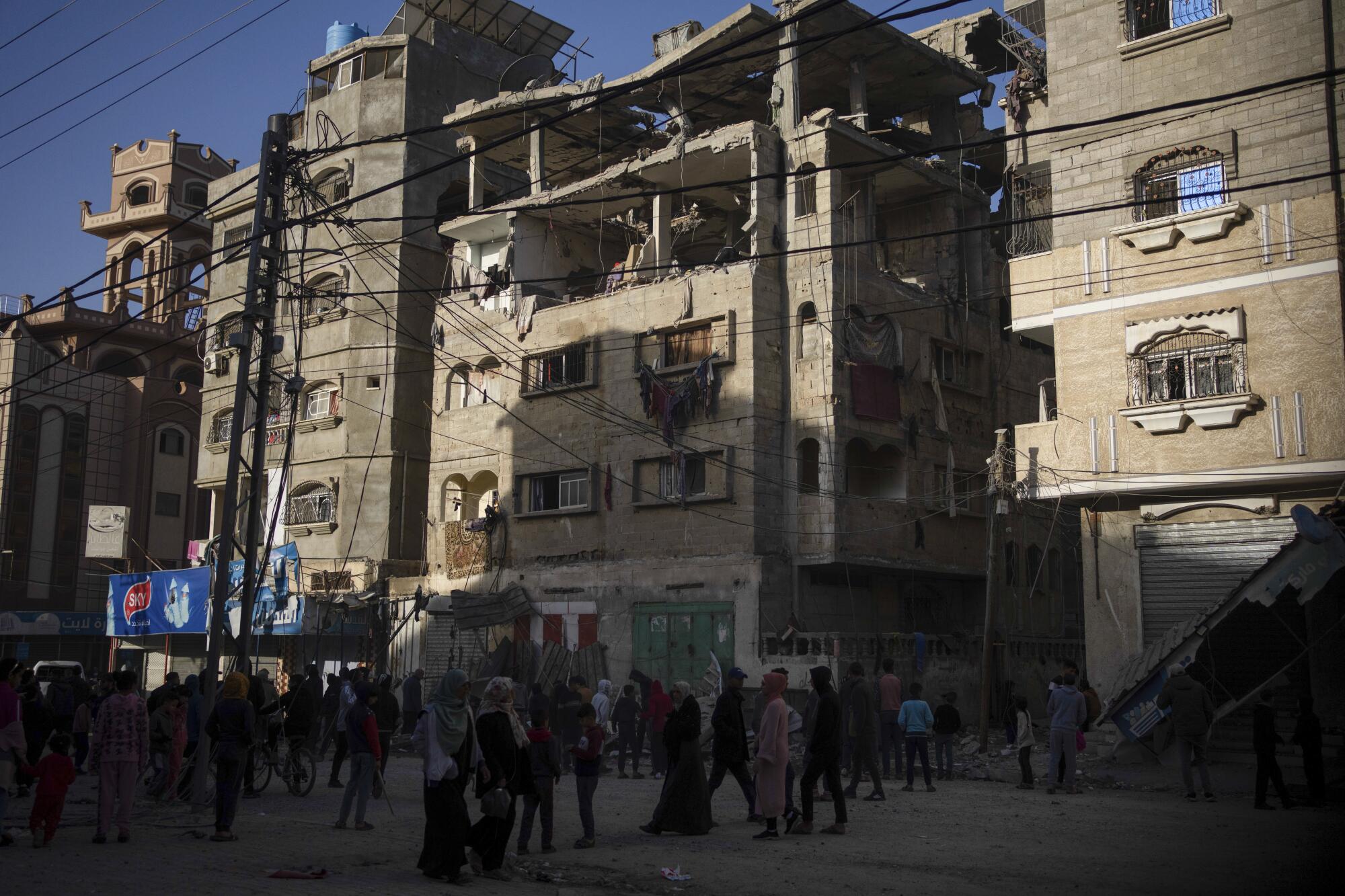
The war in Gaza is still raging with no end in sight, fueling a humanitarian catastrophe in the tiny coastal enclave. The fighting has also stoked escalating violence between Israel and Lebanon’s Hezbollah militants that has raised fears of a wider conflict.
On his fourth visit to the region since the war began three months ago, Blinken has met in recent days with the leaders of Saudi Arabia, Jordan, Qatar, the United Arab Emirates and Turkey. He says they are open to contributing to postwar plans in return for progress on creating a Palestinian state.
The word has become shorthand for systems of oppressive rule around the world — and a popular refrain of pro-Palestinian activists.
The Saudi Ambassador to Britain went even further Tuesday, telling the BBC that the kingdom is still interested in a landmark normalization agreement with Israel but that it must include “nothing less than an independent state of Palestine.”
“One doesn’t come without the other,” Prince Khalid bin Bandar said.
Blinken said that in his talks with Abbas, they discussed reforming the Palestinian Authority so “it can effectively take responsibility for Gaza.”
Abbas appeared ready to “engage in all of these efforts,” Blinken said at his next stop, Manama, the capital of the tiny Gulf nation of Bahrain.
Abbas spokesman Nabil Abu Rudeineh said they heard “good statements” from the Americans. “But nothing has happened,” he said. “The priority now is to stop the war on Gaza.”
The 88-year-old Abbas has not stood for election since 2005 and lacks support among his own people.
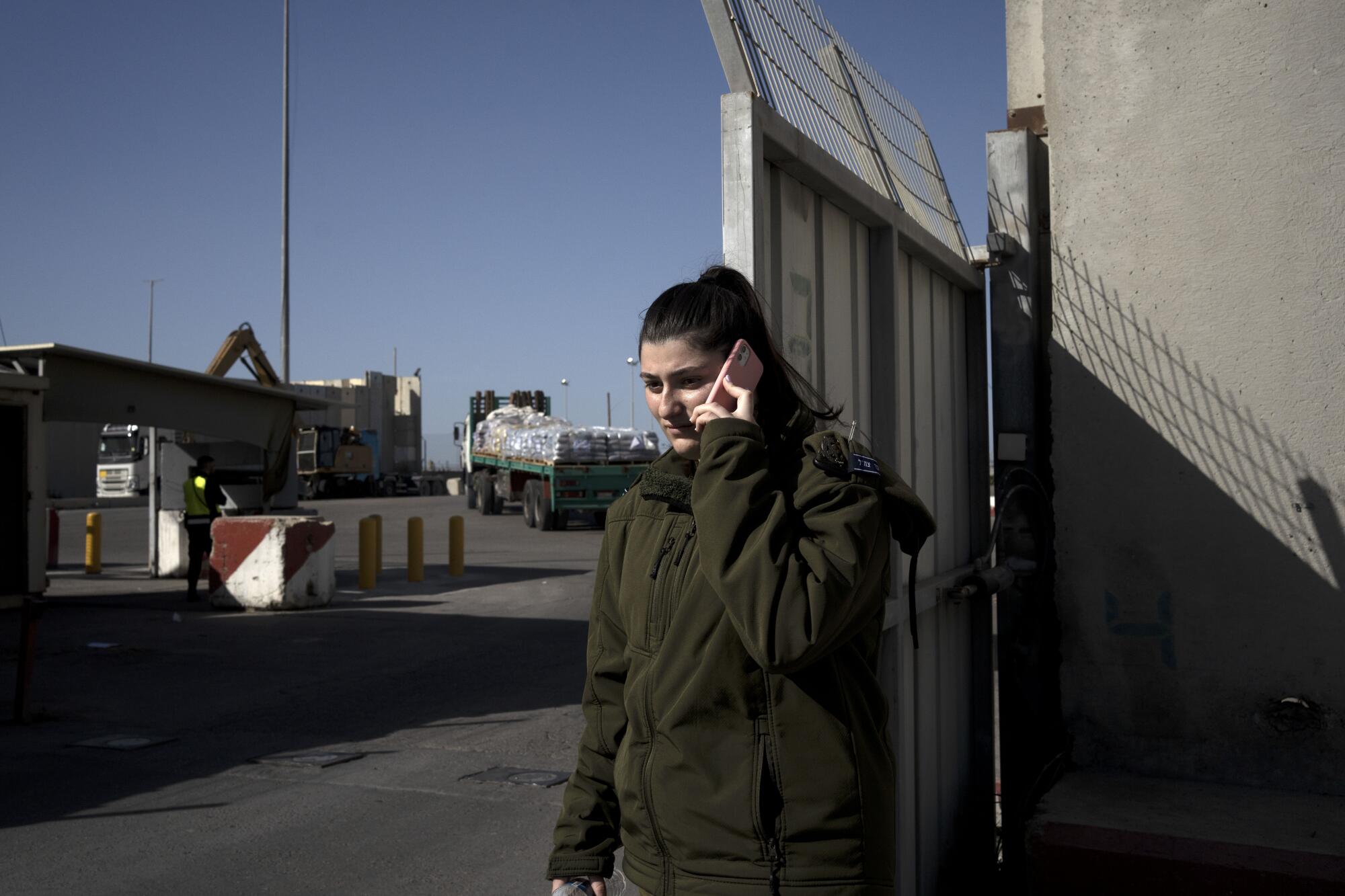
The Palestinian Authority governs parts of the Israeli-occupied West Bank under interim peace deals reached in the 1990s and cooperates with Israel on security matters. But it has been powerless to prevent the expansion of settlements in occupied territory that it wants for a future state, and there have been no serious or substantive peace talks since Netanyahu returned to office in 2009.
The Biden administration has been unable to get Israel to make even relatively minor concessions to the Palestinians, such as turning over all the tax revenue it collects on their behalf, or allowing the reopening of a U.S. Consulate to serve Palestinians in Israeli-annexed East Jerusalem.
After meeting with Netanyahu and other top Israeli officials on Tuesday, Blinken delivered a stark message, saying Israel must stop undercutting the Palestinians’ ability to govern themselves with its expansion of settlements, home demolitions and evictions in the West Bank.
Later Wednesday, Abbas met with King Abdullah II of Jordan and Egyptian President Abdel Fattah Sisi in Jordan’s Red Sea city of Aqaba. The three vowed to continue pressuring Israel to stop the offensive and working together toward a Palestinian state, according to a statement by the Jordanian monarchy.
While Palestinians are horrified by Israel’s war in Gaza, many are also angry with what they see as their own weak and useless official leadership.
Israel has vowed to keep fighting until it crushes Hamas and returns scores of hostages held by the group after its Oct. 7 attack, which triggered the war. Israeli officials say the campaign will continue through the rest of the year, and its own postwar plans call for open-ended military control over the territory, from which it withdrew soldiers and settlers in 2005.
Nearly 85% of Gaza’s population of 2.3 million have been driven from their homes by the fighting, and a quarter of its residents face starvation, with only a trickle of food, water, medicine and other supplies entering through an Israeli siege.
Blinken said more aid including food, water and medicine needs to enter and be distributed effectively, and he called on Israel to “do everything it can to remove any obstacles.”
The offensive has reduced much of northern Gaza, including Gaza City, to a moonscape, raising concerns over whether the hundreds of thousands of Palestinians who fled from those areas will ever be able to return. Far-right members of Netanyahu’s government have called for them to be resettled elsewhere, which critics say would amount to ethnic cleansing.
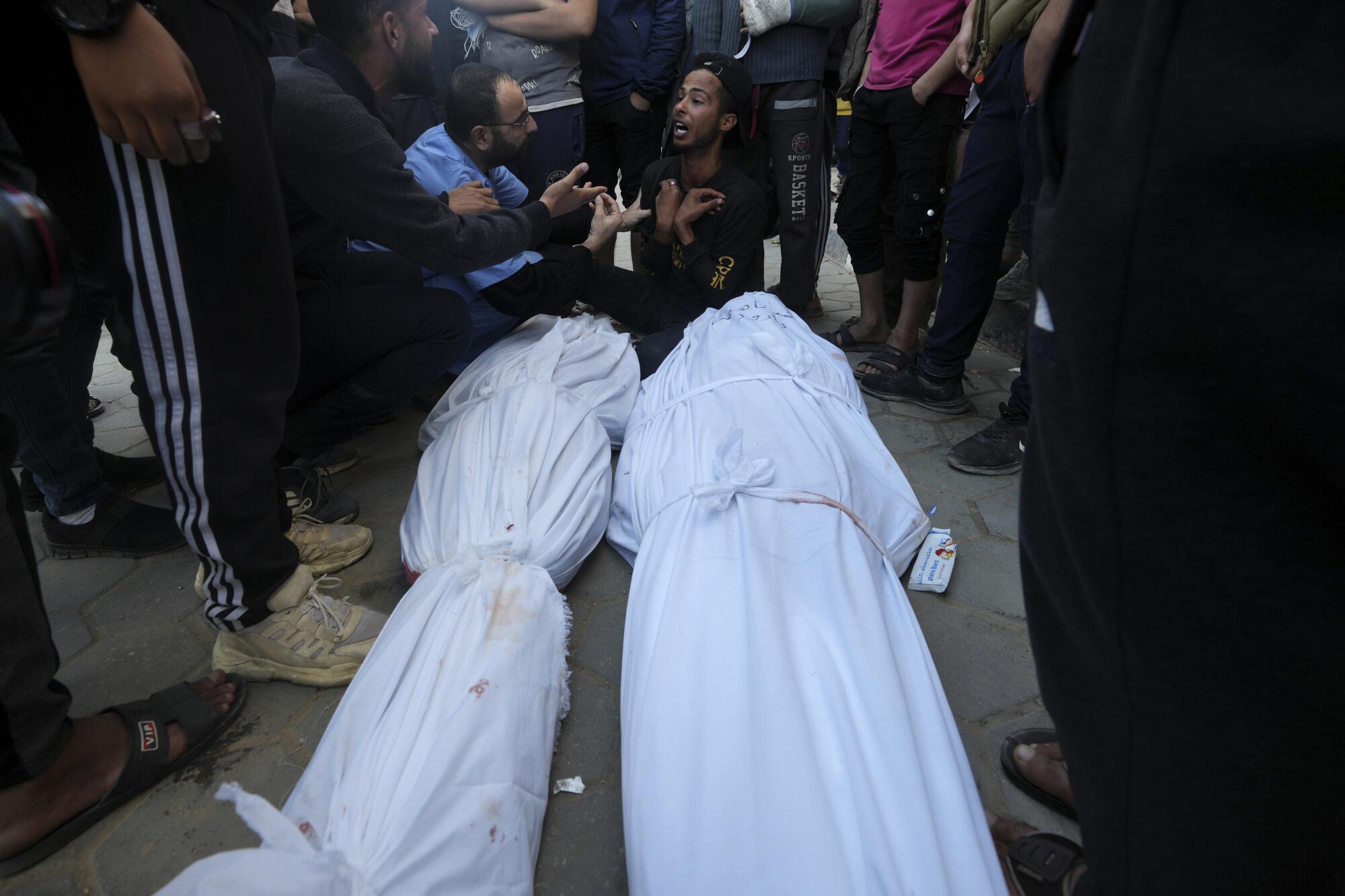
Blinken said that the U.S. was opposed to any such scenario and that resettlement was not the policy of the Israeli government. He also said he had secured agreement on a United Nations inspection mechanism in northern Gaza to evaluate how and when people can return.
The Israeli military is now focusing major operations on the southern city of Khan Yunis and built-up refugee camps in central Gaza that date back to the 1948 war surrounding Israel’s creation. Hundreds of people have been killed in recent days in continuing strikes across the territory, including in areas of the far south where people have been told to seek refuge.
A heavy strike Wednesday brought down a two-story building in the central town of Deir al Balah, close to its main Al Aqsa Martyrs Hospital, killing at least six people, according to hospital officials. Video from the scene showed people running toward the collapsed building, then pulling concrete blocks off people buried in the rubble.
An airstrike late Tuesday hit a four-story house west of the southernmost city of Rafah, killing at least 14 people and wounding at least 20 others, including women and children, health officials said. Associated Press reporters saw the dead and wounded being brought into nearby hospitals.
News Alerts
Get breaking news, investigations, analysis and more signature journalism from the Los Angeles Times in your inbox.
You may occasionally receive promotional content from the Los Angeles Times.
Since the war began, Israel’s offensive has killed more than 23,000 Palestinians and wounded more than 59,000, according to an update Wednesday from the Health Ministry in Hamas-run Gaza. About two-thirds of the dead are women and children, health officials say. The death toll does not distinguish between combatants and civilians.
In the Oct. 7 attack, in which Hamas overwhelmed Israel’s defenses and stormed through several communities, Palestinian militants killed some 1,200 people, mainly civilians. They abducted around 250 others, nearly half of whom were released during a weeklong cease-fire in November.
The Israeli military says it tries to avoid harming civilians and blames the high toll on Hamas because the militants fight in densely populated areas. It says that it has killed some 8,000 militants and that 186 of its own soldiers have been killed in the offensive.
More to Read
Sign up for Essential California
The most important California stories and recommendations in your inbox every morning.
You may occasionally receive promotional content from the Los Angeles Times.

